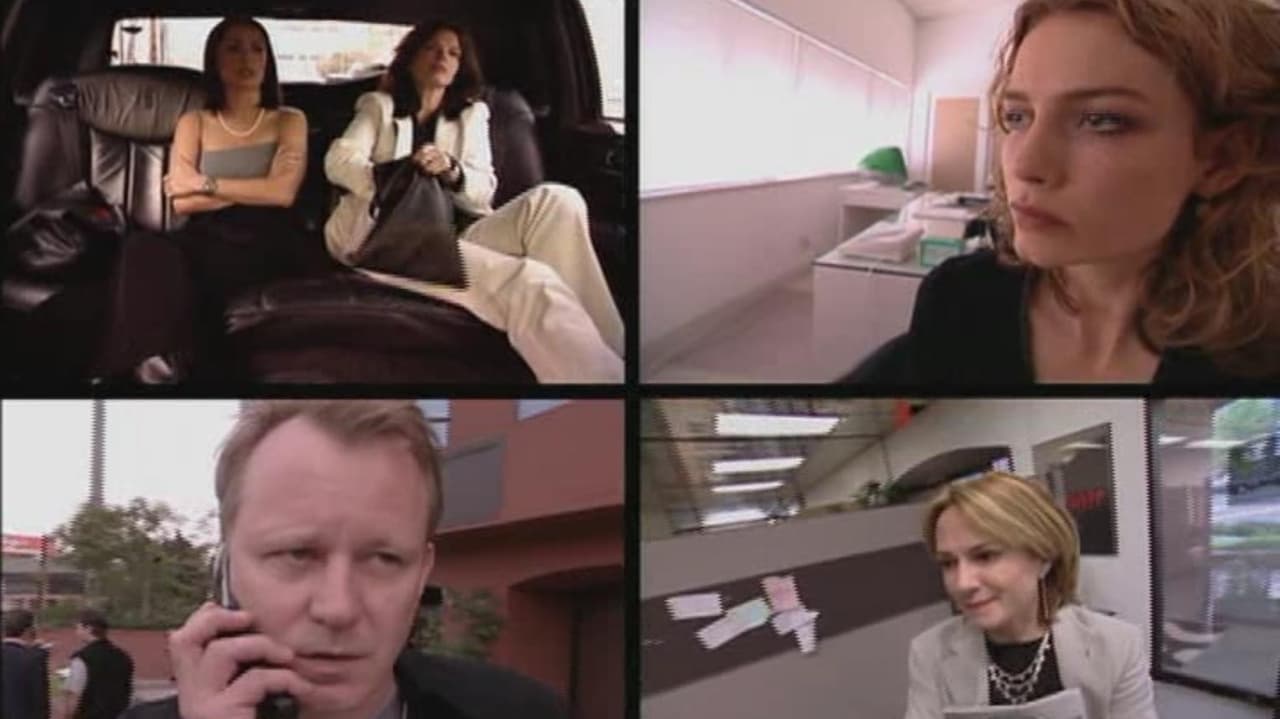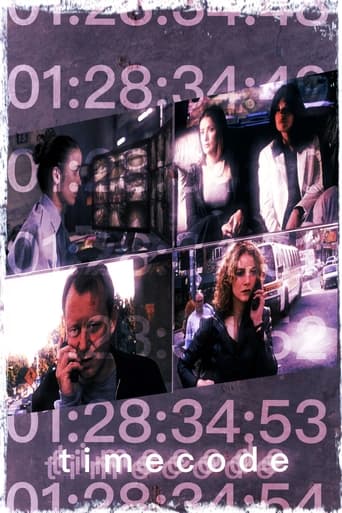

Who payed the critics
... View MoreAn action-packed slog
... View MoreAll that we are seeing on the screen is happening with real people, real action sequences in the background, forcing the eye to watch as if we were there.
... View MoreBlistering performances.
... View MoreOMG this was an absolutely awful movie! The movie puts you in the wrong mood from the very beginning when they start with the upper right camera but keep rolling credits and playing intro music in the other three frames (making it nearly impossible to understand the upper right frame). Then they gradually bring in the other frames one at a time. Once all four frames are on-board you're thinking the movie will pick up and the plot will take shape - never happens. If you're going to do something this daring you should at least have a good story with which to do it. However, this is without a doubt the worst movie I've ever seen (and I've seen some pretty bad movies). Even if the same story was a single screen movie it would also be the worst movie I've ever seen - again the story sucked. The story goes nowhere and there's never a payoff. It's like the producers put this movie together simply for the sake of syncing four frames in a time-code without any concern for the movie being good; either that or they spent so much money on the technical challenge and the brand name actors that they didn't pay for a writer and had a retarded monkey write the script for them.
... View MoreTIMECODE is a groundbreaking film by director, Mike Figgis. The movie consists of four interrelated stories which are viewed simultaneously on four different quadrants of the screen. What is most surprising about the experience is that it is much easier to absorb and understand than you might think. The focal point of this wry, black comedy centers on the offices of a film studio on Sunset Boulevard. A film is being cast, an executive meeting in underway, a limo is waiting just outside, and a montage of street activity is observed. Watching the film is similar to viewing a live performance of a string quartet. As with a musical performance, your attention shifts from one player to another without ever losing the feel or direction of the piece. The actors improvised characters and story lines, evolving and building as they went along, and Figgis's role was more of a conductor than a film director. Each of the four stories was shot in a single take beginning at 11am each day, and lasting for ninety minutes. All the four stories contain interesting performances from a stellar cast, and the soundtrack was especially inventive and supportive. TIMECODE is not a great film, but it succeeds in that it demonstrates the viability of an off-beat and creative presentation.
... View MoreI have always wondered if there was a film where it is basically one long take with no written lines, no cuts and no editing at all, and this experimental film drama from director Mike Figgis (Leaving Las Vegas) is exactly what I was looking for, in terms of freshness. The film consists of four frames simultaneously showing four different stories in real time, and once or twice meeting each other, and to help you know which of the four frames to look at there is a good use of sound cuts and bridges, and a little bit of music (by Figgis). The action all seems to lead to or from a (TV/film) studio where many members of cast and crew are going/come from, and the actors of course improvise every single line, and when they are not talking you concentrate on the frame that has sound. Starring Terminator 2's Xander Berkeley as Evan Wantz, Pirates of the Caribbean's Stellan Skarsgård as Alex Green, Golden Brooks as Onyx Richardson, Saffron Burrows as Emma, Super Mario Bros' Richard Edson as Lester Moore, Salma Hayek as Rose, Holly Hunter as Renee Fishbine, Executive; Danny Huston (son of John, and half-brother of Angelica) as Randy, Kyle MacLachlan as Bunny Drysdale, George of the Jungle's Leslie Mann as Cherine, Jurassic Park III's Alessandro Nivola as Joey Z, Ana's Assistant; Basic Instinct's Jeanne Tripplehorn as Lauren Hathaway and Dracula: Dead and Loving It's Steven Weber as Darren Fetzer. Apparently 15 takes of continuous filming were made over two weeks, the actors changed their clothes in each one so that they could not cheat in editing, and the actors were responsible for their own costume, hair and make-up. It may strain our eyes a little, and it may take you a few seconds to realise the frame you are supposed to be focusing at a particular time, but a very original and refreshing way of film-making. Very good!
... View MorePeople who don't like this film clearly don't get it, or are too lazy to pay attention (similar to those who don't like reading subtitles; their intellect just can't keep up). I saw it in the theatre upon its release in 2000 and found it an exhilarating experience. I wish more directors would be as bold as Figgis in their storytelling. The multiple-screen technique is a variation on traditional mise-en-scene, but instead of all the action being presented in one frame, there are 4. On-screen elements can not only move within each frame, but move among them. This really opens up stylistic and theoretical possibilities for the filmmaker. I understand that Figgis has used the technique in subsequent films but not to the degree that was used in 'Timecode.
... View More